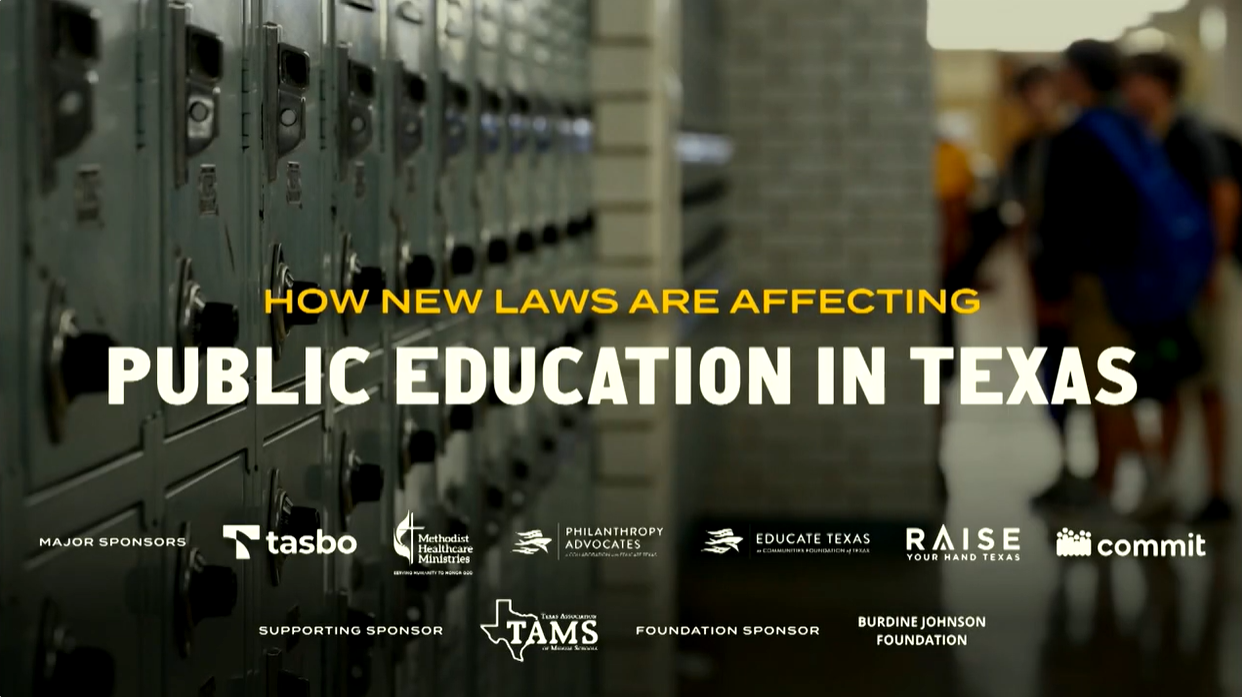House committees look at student ticketing, math courses and testing

Date Posted: 10/10/2014 | Author: Monty Exter
The House Committee on Public Education met twice this week to review the implementation of several bills passed last year. The first was a joint hearing with the House Committee on Corrections to discuss school discipline and the implementation of Senate Bills (SB) 393 and 1114 related to student ticketing. In a separate meeting, the education committee had ongoing discussions about the implementation of House Bill (HB) 5, the bill that made sweeping changes to the state's graduation requirements and testing requirements. SB 393 and SB 1114 were passed in 2013 in an attempt to reduce the issuance of criminal tickets to students for minor school offenses. This week's joint committee meeting revealed that since the implementation of those bills in September of last year, the number of court filings resulting from the issuance of class C misdemeanor tickets for school offenses has dropped by 90,000. That number represents an 83 percent decrease. During the same period, the number of school arrests, suspensions and referrals to alternative campuses has remained stable or decreased slightly. According to testimony at the hearing, this suggests that the drop in student ticketing has not had a negative impact on the campus environment with regard to discipline. While SB 393 and SB 1114 did not cut off the ability to use the criminal justice system as a deterrent and tool to maintain school discipline, the goal of the bills was to decriminalize school offenses in most situations. Advocates on all side of this issue want to reduce the school-to-prison pipeline, and in doing so, ATPE also wants to ensure that educators feel supported and in fact are supported in their efforts to maintain discipline in their classrooms. We want to know what you think about student ticketing. Please post your comments on our blog and let us know what your experience has been at the campus level since the passage of SB 393 and SB 1114. During the subsequent meeting on Oct. 8, the House Committee on Public Education heard from Texas Education Agency (TEA) officials and experts about new courses being developed in response to HB 5 to serve as equivalently rigorous alternatives to Algebra II. According to testimony at the hearing, the new Non-AP Statistics course being developed is on track to be completed soon. The Algebraic Reasoning course is proving to be more difficult. Many advocates of that course, including some legislators, envision Algebraic Reasoning as an applications-style course for Algebra II. However, that type of course is proving more challenging to develop because any course based on the existing Algebra II TEKS that would require a teacher to use applications would likely cross the line into specifying a method of teaching, which is illegal in Texas. Despite the difficulties, Dr. Uri Treisman of the University of Texas’ Dana Center, a mathematics think tank, applauded the state on the efforts being made and informed the committee that what they are striving for is in alignment with where higher education has been moving. According to Dr. Treisman, institutions of higher education have for several years been moving away from a single college math pathway based on Algebra, favoring multiple pathways instead. Such pathways include the traditional Algebra route as well as pathways based on Statistics and Quantitative Modeling. In addition to the receiving the update on new math courses, committee members raised several questions about the state's testing and accountability system. The committee voiced considerable concern about the removal of the STAAR Modified test and the impact of that change on schools and students with disabilities. TEA representatives also caused a stir among the committee when they relayed that TEA had kicked out sample STAAR test items based on the percentage of students who answered the question correctly. According to TEA, if more than 90-95 percent or less than 25 percent of tests takers answered an item correctly, it was removed. The committee noted that it seemed patently unfair to remove a question that tested basic TEKS merely because all or nearly all students answered the question correctly. A public witness who testified later during the hearing noted that by removing questions in that manner, TEA had essentially converted what was supposed to be a criterion-referenced assessment into a normative assessment. Many education experts believe that normative assessments should never be used for high stakes or accountability purposes. At one point during the hearing, Rep. Dan Huberty (R-Humble) announced that he was seriously considering filing a bill in the next session to do away with state-mandated standardized testing altogether. A representative of Texans Advocating for Meaningful Student Assessment (TAMSA) shared with the committee that more than 35 states do not use standardized testing as a graduation requirement and implored the committee to consider changing state law to make any statewide testing system diagnostic only. ATPE member Cynthia Ruiz, an English teacher from Pflugerville ISD, eloquently testified about the problem of teaching to the test and the failings of the STAAR writing test. Several committee members thanked her for her testimony. Video of the Joint Committee hearing on school discipline and student ticketing can be viewed here. Video of the House Public Education Committee's HB 5 hearing can be viewed here.
CONVERSATION
RECOMMENDED FOR YOU

04/18/2024
5th Circuit Court denies rehearing in publishers’ Texas library book lawsuit
Author of HB 900 urges Paxton to appeal to the U.S. Supreme Court.

04/17/2024
TRS board to consider lowering TRS-Care Medicare Advantage premiums
Increased legislative funding, federal changes mean TRS is positioned to pass on savings to plan participants.

04/16/2024
Texas Tribune hosts panel on the impact of new legislation on Texas public education
The hourlong conversation focused primarily on the need for and impact of three pieces of legislation passed in 2023.

